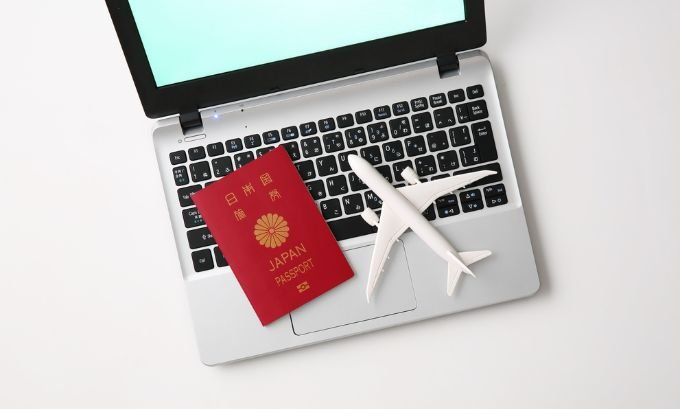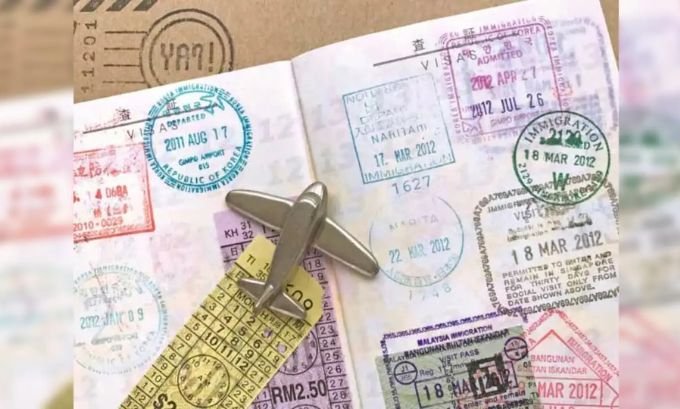Relocating to Japan is a dream for many professionals, creators, and students. Yet when it comes to visas, jobs, and housing, newcomers often find themselves in a maze of documents, certificates, and cultural adjustments. If you’ve ever wondered how to get a job visa in Japan, this guide gives you a complete roadmap—combining official requirements with real-life experiences from expats already living in Tokyo, Osaka, and beyond.
Moving to Japan: A Complete Guide to Visas, Jobs, and Housing (2025 Edition)
Quick Answer: To work in Japan legally, you need the right work visa type (Work Visa, Specified Skilled Worker, or J-Find), a job offer or sponsor, and a Certificate of Eligibility (COE) approved by the Japanese Immigration Services Agency. The process usually takes 1–3 months.
Table of Contents
Moving to Japan means answering three key questions:
- Which visa do I need?
- How do I find a job?
- Where should I live?
This guide breaks down each step so you can avoid costly
1. Japanese Work Visa Options
Work Visa for Highly Skilled Professionals
- Covers roles like engineers, professors, artists, accountants, humanities specialists, and business managers.
- Valid from 3 months to 5 years depending on job type.
- Requires a Certificate of Eligibility (COE) before applying at a Japanese embassy or consulate.
Strengths: Long-term validity, broad professional categories.
Challenges: Requires a sponsoring employer and strict document checks.

Specified Skilled Worker (SSW) Type 1
- Created to fill labor shortages in 16 industries: nursing, food service, construction, agriculture, manufacturing, etc.
- Requirements:
- Age 18+
- JLPT N4 or JFT Basic Japanese test
- Skills exam in your industry
- Job offer from a Japanese employer
- Max stay: 5 years. Family members cannot join.
Strengths: Accessible for non-degree holders.
Areas to Improve: Limited industries, no family support.
Specified Skilled Worker (SSW) Type 2
- For experienced workers in supervisory roles.
- Advantages:
- Renewable indefinitely
- Pathway to permanent residency
- Family members allowed
- Initial grant: 3 years.
Strengths: Long-term security and family inclusion.
Challenges: Requires significant industry experience.
J-Find Visa (New Graduate & Entrepreneur Pathway)
- For foreign graduates from top 100 global universities (within the past 5 years).
- Requirements:
- Proof of savings (¥200,000+ / $1,300–$1,500)
- Plan to work or launch a business in Japan
- Valid 1 year, renewable based on progress.
Strengths: Great for entrepreneurs, creators, and self-starters.
Challenges: Short initial validity, financial proof required
2. Work Visa Application Process: Step by Step
- Obtain Certificate of Eligibility (COE)
- Filed by employer or sponsor in Japan
- Processing: 1–3 months.
- Prepare Required Documents
- Employment contract (with job title, pay, duration)
- Completed visa form + photo (4cm × 3cm)
- Valid passport
- Resume + diplomas
- Employer documents (company registry, tax records)
- Apply for the Visa
- Submit at Japanese embassy/consulate, through travel agent, or via JAPAN eVISA.
- Collect Visa & Travel
- Visa approval allows entry within 3 months.
- Receive Residence Card
- Issued at airports (Narita, Haneda, Kansai) or municipal office.
Must be carried at all times
3. Finding a Job in Japan
- Direct Transfer: Employees of multinationals can request relocation.
- Networking with Startups: Coffee chats often lead to roles, especially in Tokyo tech hubs like Shibuya or Shinjuku.
- Job Portals: Daijob, GaijinPot, Wantedly, and LinkedIn Japan are top platforms.
Important: Work visas are tied to employers. If you quit, you have 3 months to find another job
4. Housing in Japan: What Expats Need to Know
- Contracts: Standard leases = 2 years, with renewal fees. Early exit is difficult.
- Location: Choose housing within 30–40 minutes of central Tokyo. Check for sunlight, train lines, and noise factors.
- Furnishing: Most apartments are unfurnished. Many expats start in share houses for flexibility.
- Temporary Housing: Hostels like Nui. Hostel in Asakusa are affordable while you search.4. Housing in Japan: What Expats Need to Know
5. Costs, Duration, and Renewal
- Visa Fees (2025–2026):
- ¥3,000 (~$25) single-entry
- ¥6,000 (~$45) multiple-entry
- Validity: 1, 3, or 5 years (depending on visa type).
- Renewals: Apply 90 days before expiry with updated documents.
6. Employer Strategies: Hiring Foreign Talent Smoothly
- Companies without a Japanese entity cannot sponsor visas directly. Instead, they use:
- Employer of Record (EOR) providers like Pebl (formerly Velocity Global).
- EORs handle payroll, compliance, and sponsorship.
- This helps global businesses test the Japanese market quickly.
Comparison Table: Visa Types in Japan
| Visa Type | Stay Length | Family Allowed | Requirements |
| Work Visa | 3m–5y | Yes (depends) | Job offer + COE |
| SSW Type 1 | Up to 5y | No | JLPT N4 + Skills Test |
| SSW Type 2 | Renewable indefinitely | Yes | Supervisory experience |
| J-Find | 1y (renewable) | Depends | Graduate + ¥200k savings |

FAQs on How to Get a Job Visa in Japan
1. How long does it take to get a Japanese work visa?
Usually 1–3 months after COE approval.
2. Can I switch jobs in Japan on a work visa?
Yes, but you must notify immigration. New employment must match your visa type.
3. Do I need Japanese language skills?
For most jobs, yes (JLPT N4 minimum for SSW). Highly Skilled visas may accept English.
4. Can I bring my family on a work visa?
Yes for Work Visa and SSW Type 2. No for SSW Type 1. 5. What happens if I lose my job?
You have 3 months to secure another job or risk losing residency.
6. Can entrepreneurs get a work visa in Japan?
Yes—through Business Manager Visa or J-Find Visa.
7. How much does a job visa cost in Japan?
Between ¥3,000–¥6,000 ($25–$45) depending on entry type.
Final Thoughts
Relocating to Japan isn’t as difficult as it looks—if you choose the right visa, plan housing carefully, and prepare documents early. Whether you’re a software engineer, a nurse, or a digital creator, Japan offers structured visa pathways for every career stage.
✔️ Choose the right visa (Work, SSW, or J-Find).
✔️ Prepare your COE and documents.
✔️ Leverage EOR services like Pebl if your company lacks a Japanese entity.
With preparation, you’ll avoid setbacks and start your Japanese journey with confidence. References Japanese Immigration Services Agency – Official Visa Guide Ministry of Foreign Affairs (MOFA) – Visa Information JLPT Official Site – Language Requirements

